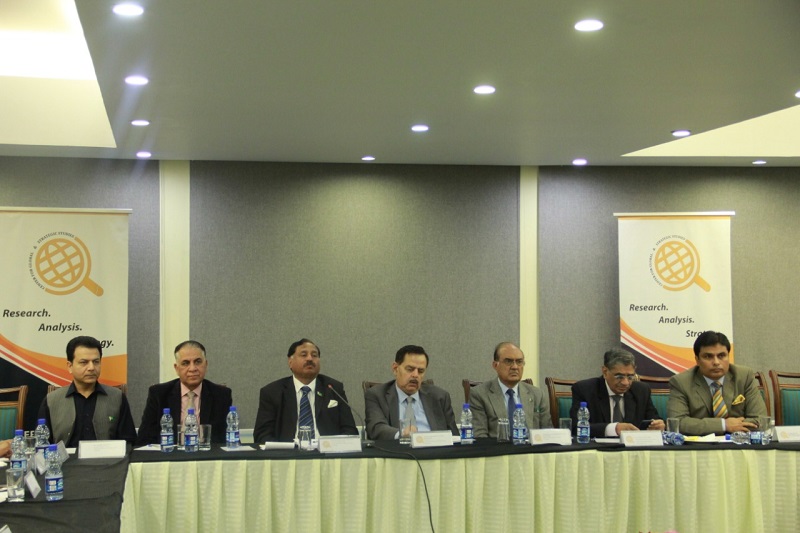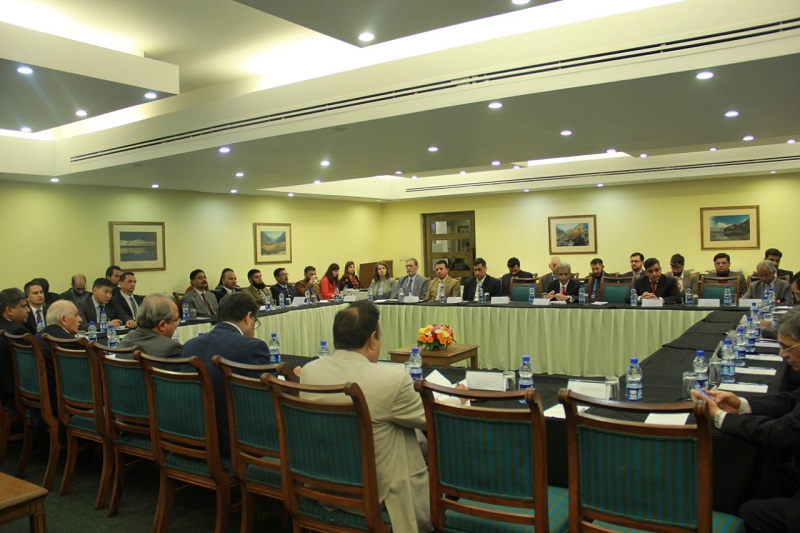ISLAMABAD, Pakistan: The Center for Global & Strategic Studies (CGSS) organized a Roundtable Discussion Session on “Water Security: Issues/Way Forward on Aggression and Conservation” at the Islamabad Club on Tuesday as a follow up to the conference on the aforementioned subject.
More than 50 water security experts shared their ideas on the looming water crisis in Pakistan and also gave suggestive recommendations to mitigate the challenges and to devise policy framework.
The roundtable discussion session was commenced with the opening remarks by the President CGSS Major General (retd) Syed Khalid Amir Jaffery.
Major General (retd) Syed Khalid Amir Jaffery said that Pakistan’s water profile is drastically changing from being a water abundant country to a water-scarce country due to depletion of its fresh water resources because of increasing population, adverse climate variations like drought and inconsistent monsoon patterns and the lack of storage facilities. He said that if we do not take effective timely steps then the results will be more worsen with drastic effects of floods and severe droughts.
The president CGSS said that changes in water availability will also impact health and food security and have already proven to trigger non-security challenges such as, refugee dynamics, political instability, and economic growth and as well as decrease in the national developmental progress.
The security experts provided their valuable insight for the mitigation of this ongoing water issues in Pakistan. According to them we need to take more practicable steps. Indus Water Treaty point controversial as Pakistan could have had a better more holistic deal. Pakistan should develop legal challenge by gathering legal experts and taking its case to International Court of Justice (ICJ).
It was mentioned that Pakistan is lacking in its implementation phase. In all our policies we go till the planning phase but not the implementation part. Pakistan is in need to make small dams instead of being obsessed with the big dams only. The country has potential to make small to medium size dams. Small dams could be built by private sector and the investors should be incentivized.
Furthermore, the experts suggested that, rain water harvesting must be introduced at the household level both in urban and rural areas. Flood irrigation is a criminal act that is still being practiced in Pakistan. Improve irrigation methods and crop zoning. Navigation industry and water parks are promising and can alleviate flooding. There is a need to reuse water in houses like the water used in our kitchens can be reused in our toilets. Enhance the capacity building at all the levels for instance, awareness campaigns particularly at educational institutions.
The experts were of the view that the government should bring all stakeholders together to implement effective policy to overcome this persisting issue.
